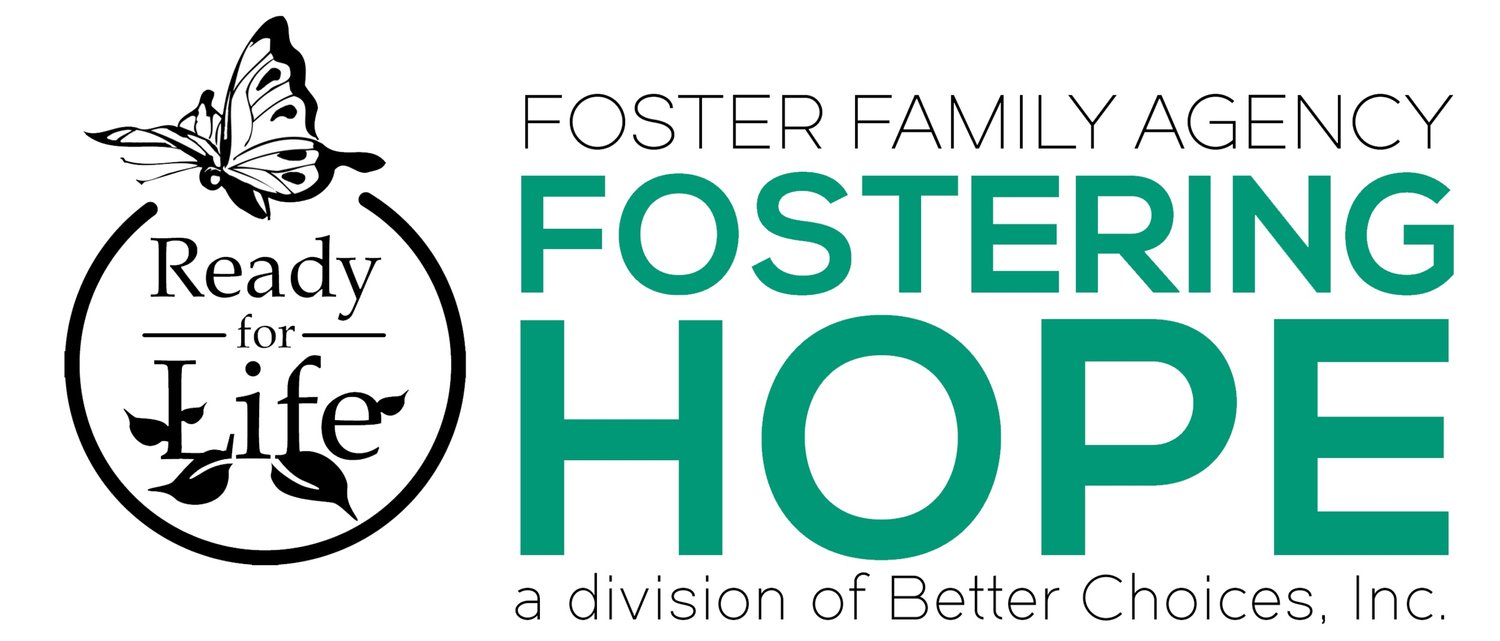Frequently Asked Questions
Becoming a Resource Family can be a daunting task. We're here to help you figure out all the details from start to finish. Here are some of the most common questions asked along the way.
What does it mean to be Resource Family?
Am I eligible to become a Resource Parent?
How do I attend a training?
Am I capable of physically and emotionally caring for children?
Will I be caring for traumatized children?
Do I have adequate income to meet my current family’s needs?
Will I have to help transport any children I care for to and from appointments and activities often?
Is a reference check part of the application process?
Will I be working directly with birth families?
How or when am I able to become a permanent home for a child?
Q: What does it mean to be Resource Family?
Resource families are foster, adoptive, and relative caregivers who play a key role in the life of a child in care. When relatives cannot be a placement option for the child, every effort is made to actively recruit and support resource families within the child's home community.
Q: Am I eligible to become a Resource Parent?
Resource parenting takes a village. Anyone over the age of 18 can apply to be a resource parent. Single. Married. Working. Retired. First time parent or seasoned veteran. Regardless of your situation, support is key! As an agency, we are here for you, but having an outside support system is critical.
Q: How do I attend a training?
Parents must complete pre-certification training and paperwork. They also must commit to annual continuing education and workshops. Trainings are available both during the day and on weekends and evenings to accommodate working families.
Q: Will I be caring for traumatized children?
Many children in foster care, through no fault of their own, have gone through traumatic situations in their lives. Some of these children may have challenging and difficult behavioral issues. As part of a professional team, you will have the support and help from a variety of professionals and social workers that can help you in managing potentially difficult behavioral issues with children.
Q: Am I capable of physically and emotionally caring for children?
Being a resource parent can be demanding. You must be healthy and emotionally stable to care for foster/adoptive children. All adults living in your home will be required to complete a health and TB screen. In addition, all resource parents will be given a family home assessment.
Q: Do I have adequate income to meet my current family’s needs?
You don’t have to be rich to be a resource parent, but you must have enough income to meet your own family’s needs. When filling out the application, you will be asked to provide proof of income.
Q: Will I have to help transport any children I care for to and from appointments and activities often?
Transportation is a big part of resource parenting. Children in foster care will have numerous appointments (counseling, visitations, medical, etc.) In addition, participation in extra-curricular activities is encouraged.
Q: Is a reference check part of the application process?
If you have ever been a resource parent or a licensed child care provider we are required by law to call those agencies, including Community Care Licensing. If you or any adult (18 or older) residing in your home has ever been convicted of a crime, an investigation will be performed to approve or deny criminal clearance.
Q: Will I be working directly with birth families?
Resource homes are designed to be temporary. Many children in foster care reunify with their birth family. Resource parents are vital to the process of supporting successful reunification.
Q: How or when am I able to become a permanent home for a child?
If family reunification fails, children in foster care need permanent homes through adoption, guardianship, or long term foster care. Are you open to being a part of a child's life forever?
““My meetings and trainings with social workers made me feel confident about becoming a foster parent and that I was going to be supported by the Ready for Life staff.”
Amanda | Redding, CA”

